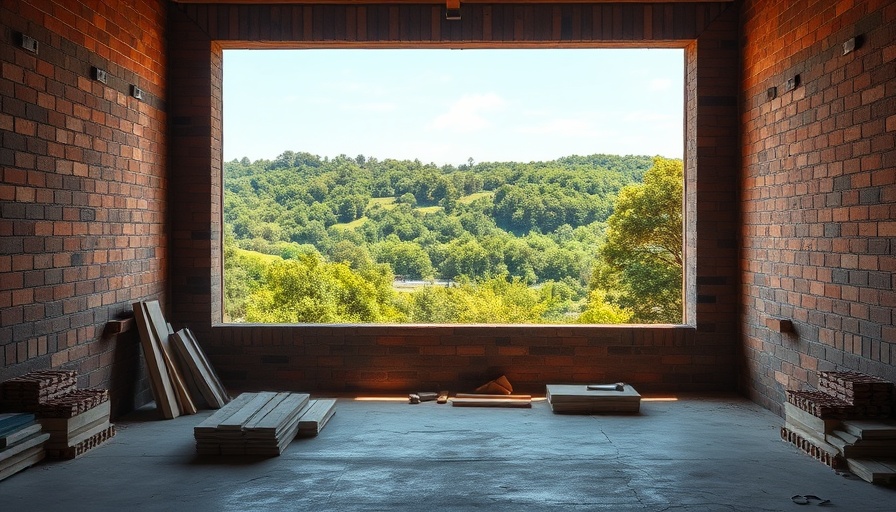
Understanding the Planning & Infrastructure Bill
The recently introduced Planning & Infrastructure Bill is poised to transform the housing and infrastructure landscape in the UK significantly. This comprehensive legislation aims to accelerate housing construction and improve the planning process, including reforms to compulsory purchase orders. The initiative has sparked conversations regarding its potential impact—will it truly lay down a solid foundation for sustainable growth, or will it fall short?
Industry Reactions: A Mixed Bag
Reactions from industry experts regarding the Bill's promises have varied. Lawrence Turner, a director at Boyer, views the reforms as a gateway to expansive residential developments, emphasizing the benefits of coherent planning processes and quicker decision-making.
Conversely, Neil Jefferson from the Home Builders Federation expressed cautious optimism, acknowledging that while the bureaucratic measures are set to foster increased housing supply, overcoming additional constraints will be critical. This sentiment resonates deeply with homeowners looking to expand their dwellings through home additions or renovations.
Historical Context and Future Prospects
The Planning & Infrastructure Bill arrives during a crucial time, as the UK grapples with a housing crisis that has displaced many families, leaving over 160,000 children in temporary accommodations. Backed by promises to build 1.5 million homes, this legislation seeks not only to accelerate construction but also to foster a boom in economic growth by improving essential infrastructures such as railways and renewable energy projects.
What Does This Mean for Homeowners?
For homeowners, particularly in Virginia interested in home improvements, the Bill presents an invaluable opportunity. Plans to streamline the permitting process for home additions could simplify the construction of anything from a family room addition to modular home expansions, making changes more accessible and affordable.
Moreover, with the proposed nature restoration fund, there is potential for environmentally friendly home modifications that appeal to eco-conscious homeowners. This aligns with growing trends in residential renovation focused on sustainability and efficiency.
Need for Thoughtful Implementation
The Bill's implementation is crucial. Critics warn that while it offers significant reforms, the real challenge lies in how efficiently these changes are enacted. Streamlining planning decisions must be done responsibly to avoid sacrificing community needs and environmental considerations. Thus, homeowners should remain proactive in voicing their needs and concerns as the government rolls out these programs.
Final Thoughts: Seizing the Opportunity
As the Bill makes its way through parliamentary processes, it holds significant promise for transforming planning and development across the UK. The potential for more practical home extension processes could encourage homeowners to consider renovations or expansions that enhance their living spaces while contributing to the broader goal of addressing the housing crisis.
With careful attention to sustainable practices and community needs, the Planning & Infrastructure Bill could indeed become a blueprint for the future—one where homeowners, builders, and local governments work together to create vibrant, livable communities.
 Add Row
Add Row  Add Element
Add Element 


 Add Row
Add Row  Add
Add 

Write A Comment